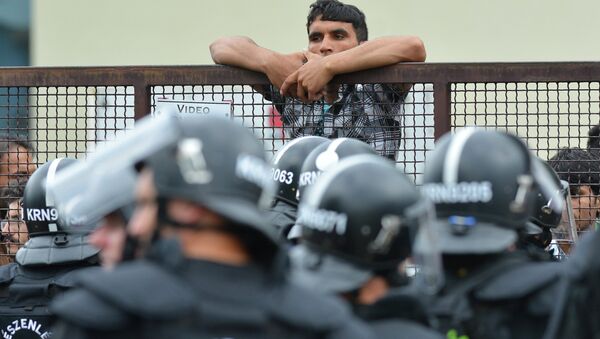Following the EU's new approach to tacking terrorism, which aims to standardize counterterror laws in the wake of a number of terror attacks across the continent, NGOs including Amnesty International, Human Rights Watch and the Open Society Foundations, have raised concerns over the broad language used in the new directive.
Along with fears it may inhibit the right to peaceful protest and the ability to offer dissenting political views, the NGOs said the "punitive" measures could also be used to target specific ethnic and religious groups.
Groups have warned that draft #EU #counterterrorism law threatens #humanrights https://t.co/j5YQ8LUlKi pic.twitter.com/mrB9EDSxD4
— Amnesty EU (@AmnestyEU) November 30, 2016
"This draft law is likely to criminalize conduct by people with no intention to commit or support terrorism, so-called 'preparatory acts' could include everything from communicating with people in certain countries to buying an airplane ticket", said Julia Hall, Amnesty International's expert on counter-terrorism.
"Time and again we have seen such measures used by governments to curb freedom of expression, and to control some people's movements and associations, with little or no credible and sufficient evidence that a person is likely to commit a crime."
Calls for Greater Safeguards
Amid these concerns, critics have called for additional safeguards to be implemented to ensure that any new counterterror laws can't inhibit the human rights of citizens.
"States must effectively address the threat of terrorism. But the EU has rushed to agree a vaguely worded counterterrorism law that endangers fundamental rights and freedoms," said Jonathan Horowitz of the Open Society Justice Initiative.
EU counter-terror wars: EU-US military convergence, failure to prevent attacks, weakening of international law @ecfr https://t.co/BESX1eAeJj
— Boris (@ajeganov) October 21, 2016
"Time and again we've seen governments adopt abusive counterterrorism laws without assessing their effectiveness, and then implement them in ways that divide and alienate communities. We worry this directive will reinforce this trend and leaves too much leeway for governments to misuse the directive to violate rights."
Concerns Over EU Terror Laws
Questions have been raised over the terror laws of certain EU countries after a Syrian man was recently sentenced to ten years in prison in Hungary after being accused of orchestrating clashes between refugees and police.
The 42-year-old, named as Ahmed H, was already a legal EU resident in Cyprus, and was arrested on the Hungarian-Serbian border in September last year after clashes erupted between Hungarian authorities and refugees making their way through Europe during last year's migration crisis.
A visibly upset #AhmedH and an injustice: 10 years prison sentence. #roszke11 Please read and share his story: https://t.co/C3oDCiB6JC
— Gauri van Gulik (@GaurivanGulik) November 30, 2016
The man, who claimed he was helping refugees make their way through Europe, was accused of being a ringleader to the violence because he was holding a loudspeaker.
Despite the fact that the man admitted to throwing objects during the fracas, Amnesty described the decision to sentence him to ten years in prison under terror laws as "an affront to justice."




